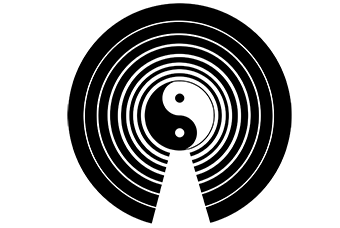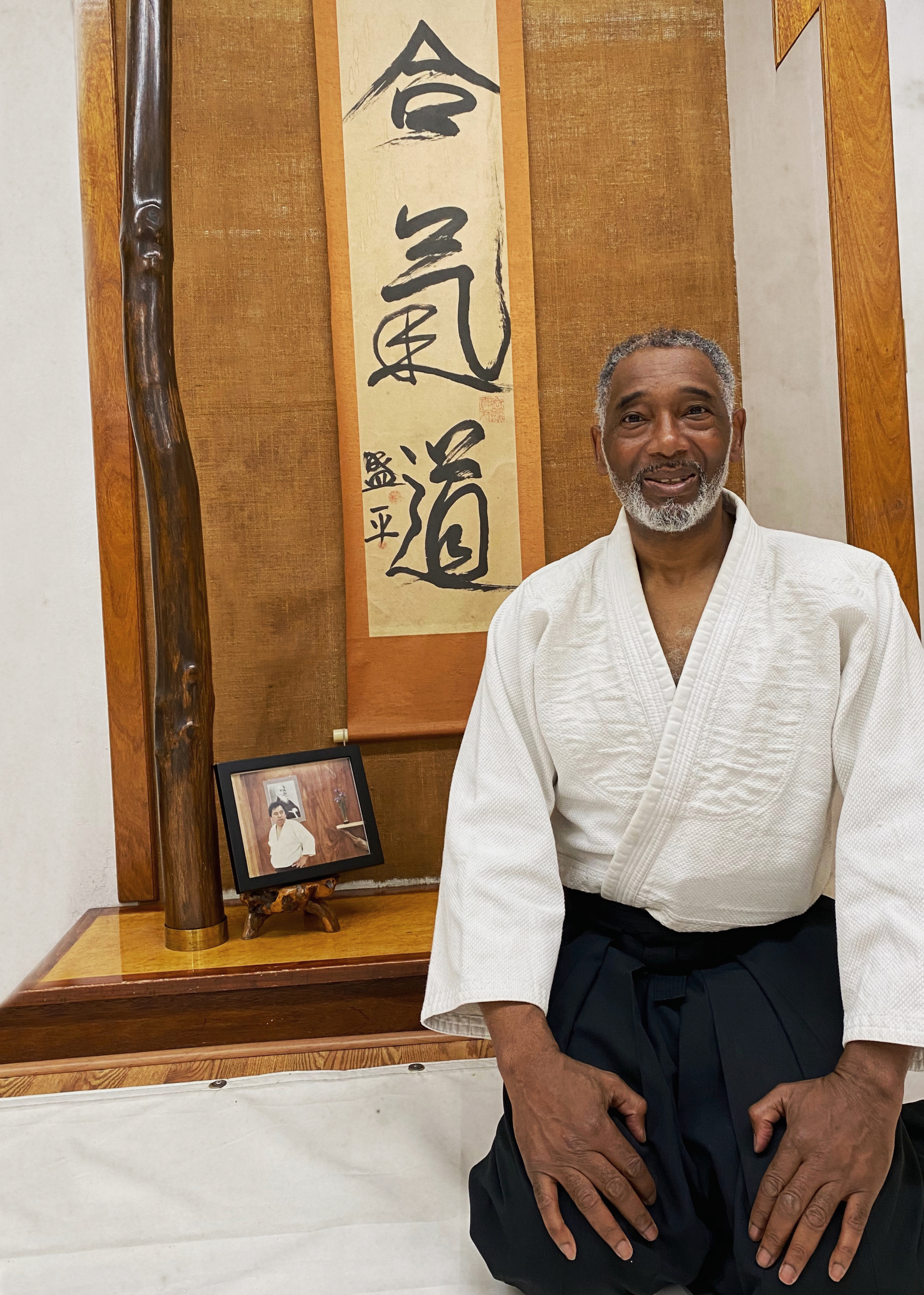Sensei L. Rick Butler embarked on his path as a martial artist and teacher when he was a boy growing up in New Orleans. The beauty, grace, discipline, inner strength, peace, and calm of martial arts had always fascinated him. At age twelve or thirteen, he ordered his first self-defense course from an ad in the back of a comic book. A few years later at the age of fifteen he began his formal training in Shorei-Goju Karate. His teaching career began at age sixteen when he gave basic karate lessons to the neighborhood kids in the basement of his family’s house. His goal was to get them to see martial arts as an alternative to joining a gang or participating in negative behavior. It was during the Bruce Lee craze and everyone wanted to learn this new way of fighting. To keep his students interested he’d choreograph a fight scene for a karate movie and give everybody a role.
In 1979, Butler Sensei witnessed Shihan Fumio Toyoda and his student Sensei Garrett Hawkins demonstrate Ki-Aikido, a life affirming Japanese martial art that emphasizes non-aggressive self-defense, non-violent conflict resolution, and minimizing chaos in daily life. The experience was life changing. He immediately enrolled with Shihan Fumio Toyoda, founder of the Japanese Culture Center, Aikido Association of America and Aikido Association International. He would eventually switch completely from karate to Ki-Aikido. In 1981, Sensei Garrett Hawkins a student of Toyoda Shihan, became Butler Sensei’s primary instructor. Hawkins Sensei and Toyoda Shihan trained Butler Sensei to black belt proficiency.
Read More

Shihan Fumio Toyoda
In 1986, Butler Sensei co-founded Gibraltar Servicing Consultants, Inc., (GSC) a nation-wide mortgage servicing consulting firm and served as chief executive officer. Prior to GSC, he held several positions in the mortgage banking industry, including serving as a regional servicing representative for the Federal Home Loan Mortgage Corporation (FHLMC). He is the co-author of the Mortgage Bankers Association of America’s “Handbook of Collections”, and is published in Mortgage Banking Magazine. In 1993, with encouragement from Hawkins Sensei, Butler Sensei began teaching Aikido at various locations including the Chicago Park District and Olive-Harvey College in Chicago, IL.
In 1997, compelled by his desire to help people enhance their quality of life, Butler Sensei left Gibraltar Servicing Consultants, Inc., and began teaching the Pathway to Harmony Aikido Program (PHAP) a life skills and self-defense program designed to teach students how to unify mind, body, and spirit (will) to accomplish their academic, professional, and personal goals; help students gain greater control and balance/harmony in their lives through the use of martial arts and meditation; help students minimize stress in their lives; and, help students develop skills that can help them improve their quality of life.

Sensei Garrett Hawkins
2011 – WGN-TV selected Butler Sensei as one of “Chicago’s Very Own” for his work with youth and adults.
2018 – Pathway to Harmony, Inc. creates and co-sponsors the Pathway to Harmony Aviation-STEM program at Lindblom Math and Science Academy.
For over forty years Butler Sensei has taught and worked with youth, adults, church groups, and Community organizations. He is a husband, father, surrogate father, and big brother to many. He is known for his passion for teaching and his true desire to help people enhance their quality of life. Students, parents, and his peers praise him for his motivational skills, patience, and the individual attention that he provides everyone. Butler Sensei has been a member of the Aikido Association of America since it’s founding in 1984. He is also a member of Aikido Association International. Butler Sensei is a Ni-Dan (2nd Degree Black Belt) in aikido. His credentials are recognized by the Aikikai Foundation, the Aikido World Headquarters in Tokyo, Japan, and Aikido United in Chicago, IL.
Pathway to Harmony is a not for profit created in 2006. We provide quality educational and life skill programs that are created to address issues of stress, apathy, frustration, anger, and violence that have a profoundly negative impact on our communities; and, create educational initiatives that motivate youth and adults to enhance their quality of life and accomplish their academic, professional, and personal goals.

